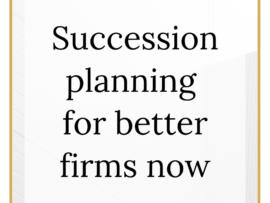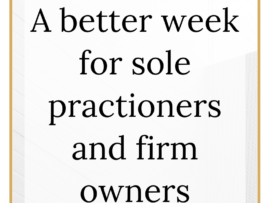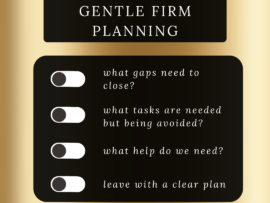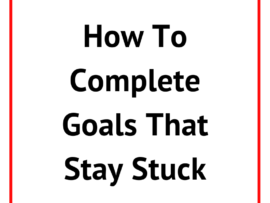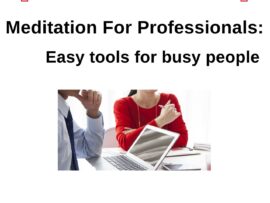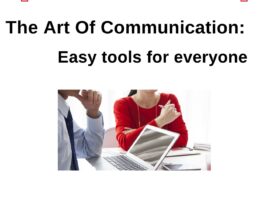Recruitment : Where It Can Go Wrong, And How To Make It Right
0 CommentsTalks & Tipples – Leadership Breakfast – Marketing Made Simple.
A big thank you to Lesley Leather of Tailored Recruitment for sharing her insights and professional knowledge on how to make recruitment more effective.
Here were the top tips we took away –
- Be clear on what you want and the impact it will have
Review whether there have been any changes to the role, or business, that needs to be taken into account in any job description. Check the job title makes sense to external candidates, that the requirements are realistic, and consider if you can narrow down the absolute must haves. Too many detracts from the key essentials. They will also rule out excellent candidates who won’t apply if they can’t hit all the criteria. Ensure your salary matches the role requirements. Be cautious of using language, or setting out responsibilities which suggests a senior role, if, that is not intended, or the salary is not commensurate.
- Do the groundwork
Research the current salaries. Draft the job specification with fresh detail. Ensure all legal requirements around equality and discrimination are met. Look at how you will market the role and which platforms will be best (job boards, social media, recruitment agents, publications, employee referrals) to attract the best candidates. Determine who will carry out the recruitment process (including their knowledge and skills of the role and recruiting). Ensure those involved have the capacity and time for when you plan to carry out the recruitment. Time intensive work includes drafting the job spec, writing out interview questions, reviewing CV’s, responding to queries, holding interviews, and responding to applicants. Consider, do they have capability, space in their diary, are they on holiday? Allow for 2-3 months and around £200 per job board.
- Share the benefits of the company
In the current candidate driven market, it is important to share what the company offers to candidates. This can include more than financial benefits. It might be cultural, access to ongoing learning, free parking, being close to the town centre, or flexibility of working. Ensure your company’s standing remains positive in how you deal with applicants, including those you do not take to interview, or recruit into the role.
- Make it easy for the candidate
Set out the process, how best to apply, what the timings and next steps are, and do so from the outset. Be clear about the expectations of how the telephone or in person interview will proceed. Share details of who they will meet, perhaps even type of dress, where is best to park (especially if you know your nearest carpark is always full), and how long the interview will take (parking, childcare, returning to work). You want to speak with the candidate at their most relaxed to ensure you recruit the best person for the role, so make it easy for them and for you.
- First things first
It is often useful to have a telephone interview before any further interview to save time. Ask the challenging questions first. If you know there are aspects of the role which people find challenging, get those out of the way first. Deal with any questions around the cv, gaps, inconsistencies, career paths. Plan your interview and stay in control, otherwise you can be taken off topic, questions remain unanswered, or you spend too much time only to get to the sticking question at the end i.e. salary, working hours, a particular skill, commuting, etc, that makes it clear this won’t work. Set out the interview schedule in advance with all those involved.
- Keep your options open
Once you have selected your candidate, they will be keen to receive the offer letter before resigning. Plan on how you will reject other candidates. Be ready to go, however, you may want to tell candidates to expect a longer time for a response than is intended. This gives you a short window in case your offer to the first candidate is rejected, they change their mind, or try to renegotiate terms in a way that is not acceptable. This now frees you up to offer it to the second candidate, who won’t be aware they were not the first choice, becuase of the timeframe you proposed you would revert.
- Consider your chosen outsourcing arrangements
If you are choosing to use a recruitment consultant, consider what it is you are looking for. Services can range from finding a candidate, to drafting interview questions, undertaking the initial sifting process, conducting interviews, visiting your office to become more familiar with the location and environment, and specialisms if necessary for roles. Ask questions. For example, you may want to know their familiarity with the sector, market or location, or you may want to know if the recruitment agent has spoken to the candidate, in any detail, or at all, before passing their details on to you. Find a good fit for you.
- Stay in touch
Ensure that you stay on top of the process after the offer has been made. Ensure any offer letters or contracts have been signed and returned. Ask the candidates how they are finding working out their notice. Lack of response may be telling. It has been known for candidates not to turn up to work on the first day, or try to renegotiate terms at the last minute. Staying in touch not only allows you to build rapport and ensure all is well. It also allows the candidate to feel reassured that things are progressing smoothly and there have been no changes with their future role from your end. Once in place – continue the journey as they settle in.
A great way to start a Friday morning. We hope you can join us for the next one.

